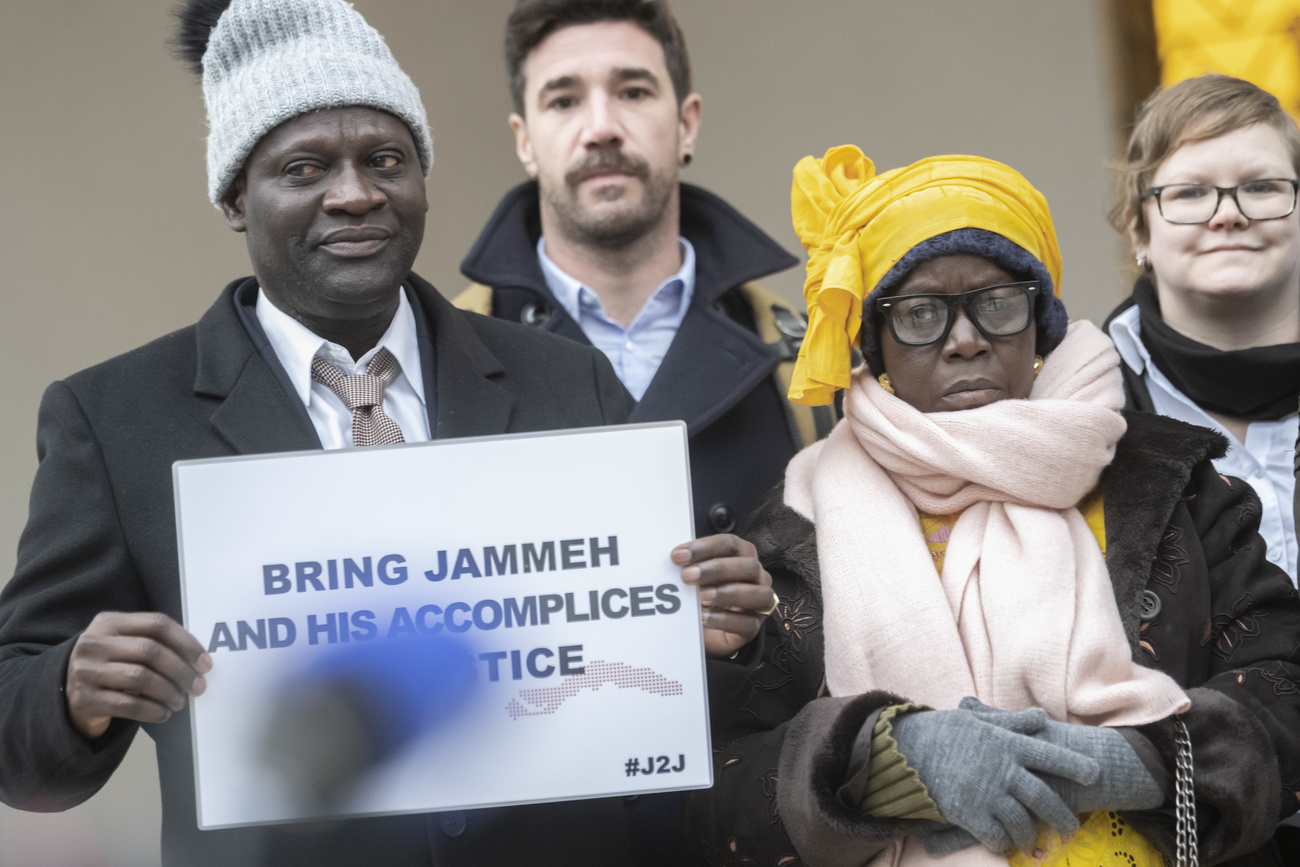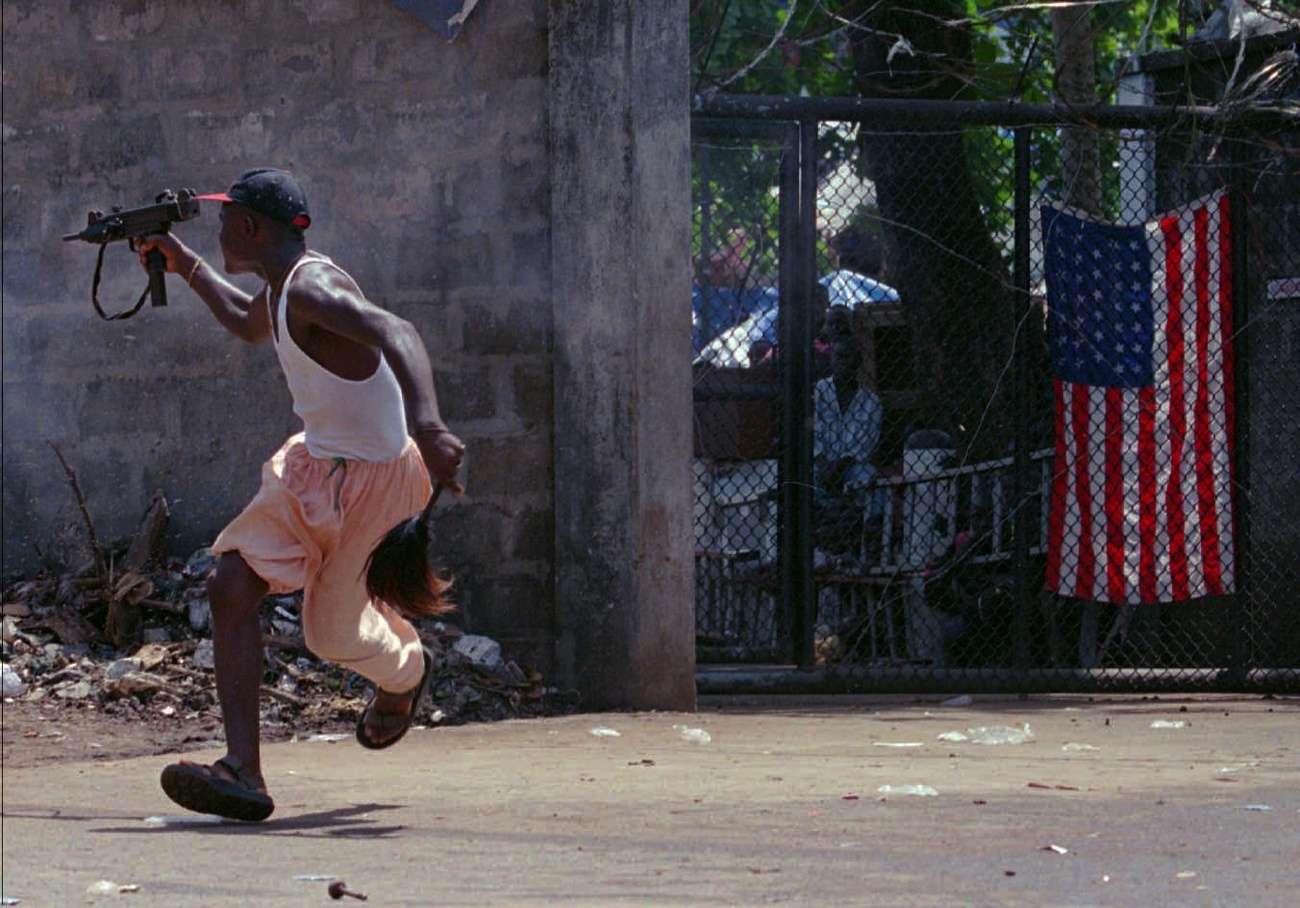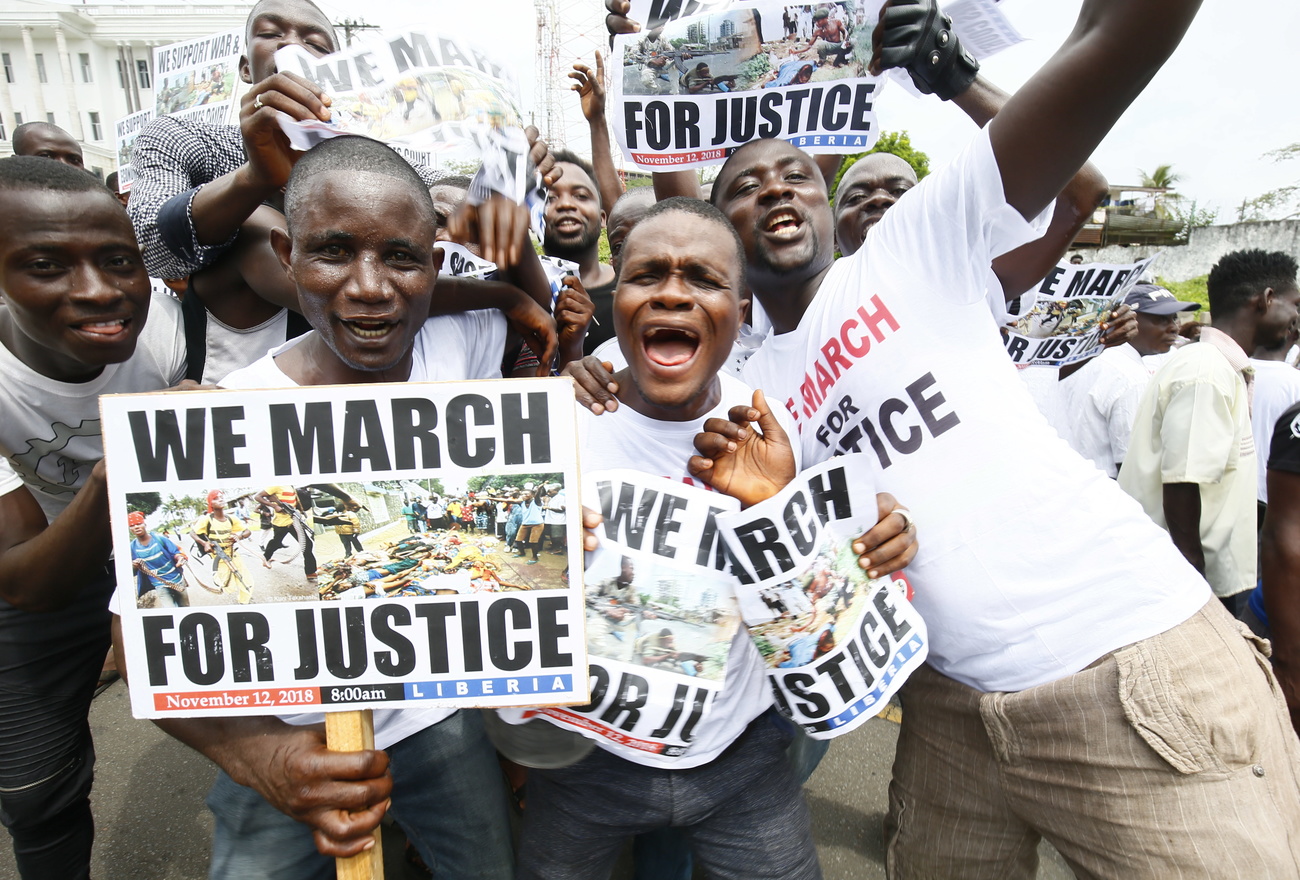
Swiss conviction of Ousman Sonko sends ‘resounding message’ against impunity

Former Gambian politician Ousman Sonko was sentenced in Switzerland on May 15 under the universal jurisdiction for crimes against humanity. This has been touted as a strong warning to the perpetrators of atrocities around the world.
Former Gambian politician Ousman Sonko was sentenced in Switzerland on May 15 under the universal jurisdiction for crimes against humanity. This has been touted as a strong warning to the perpetrators of atrocities around the world.
Twenty years in prison for crimes against humanity: this was the verdict handed down on May 15 by the Federal Criminal Court in Bellinzona against the former Gambian interior minister, Ousman Sonko. The verdict had been eagerly awaited in Switzerland as well as more than 4,000 kilometres away in the Gambia.
As the former right-hand man of Gambian dictator Yahya Jammeh, Sonko was found guilty of murder, kidnapping and torture committed between 2000 and 2016. His trial was held in Switzerland under universal jurisdiction, which since 2011 has enabled Swiss courts to deal with the most serious crimes even if they were committed abroad, as long as the perpetrator is on Swiss soil.
The judgement is historic, as it is the first time that such a senior government official has been tried under this legal principle in Europe. Sonko, whose defence had sought acquittal, can still appeal against this decision. This would delay the final verdict by at least two years.
Sonko fled the Gambia in 2016. He was recognised by fellow Gambians in an asylum centre in canton Bern and reported to the authorities by the Geneva-based NGO TRIAL, which specialises in tracking down international criminals. Sonko has been held in Swiss custody since 2017.
Read our article to find out more about the work of the Geneva-based NGOs TRIAL and Civitas Maxima:

More
The Swiss NGOs that use universal jurisdiction to bring war criminals to justice
Strong signal
Sonko’s conviction sends a “resounding message” against impunity, says Philip Grant, executive director of TRIAL International. “Ministers involved in abuses in Sudan, Myanmar, Gaza or Ukraine will be aware that the courts of third countries could one day arrest and convict them for the atrocities committed.”
Above all, this ruling is a relief for the victims and their families, some of whom travelled to Switzerland for the verdict. This was the case for Fatoumatta Sandeng, one of the plaintiffs, whose father was murdered by the Gambian regime in 2016. “I am very happy, as are my family and the Gambia. The court has clearly highlighted the role played by Ousman Sonko as Minister of the Interior on the day my father was arrested and tortured,” she told Swiss public television, RTSExternal link.
“It’s also a very strong message to the Gambia,” added Philip Grant. “Now it has to do what is necessary to ensure that justice is done on the ground. Universal jurisdiction is subsidiary, it is not there to replace foreign justice.”

More
War crimes: holding perpetrators to account
More cases under universal jurisdiction
In June 2023 the Swiss Federal Criminal Court sentenced Alieu Kosiah to 20 years’ imprisonment for war crimes and crimes against humanity. The former Liberian rebel leader was the first war criminal to be tried in Switzerland under universal jurisdiction.
This principle is designed to combat impunity for the most serious of crimes. It is now integrated in legal systems in most of the world’s states.
But while it is increasingly used – with 36 new investigations opened and 16 convictions handed down just last year – only 13 countries currently have cases under way, according to TRIAL’s Universal Jurisdiction 2024 Report,External link in collaboration with other NGOs
Along with Switzerland, other countries pursuing cases under universal jurisdiction include France, Germany, Sweden, the Netherlands and Belgium.
Extensive process
While Grant has been critical in the past of the Swiss justice system’s lack of action in terms of universal jurisdiction, he believes that the Office of the Attorney General of Switzerland (OAG) has shown a greater willingness to deal with international crimes since the appointment in 2022 of Stefan Blättler as the new chief prosecutor.
“The difficulty with universal jurisdiction is the geographical distance from the evidence, which has to be gathered abroad. But it’s also often the scale of the charges against the suspects. This means extremely lengthy and costly investigations,” explains Maria Ludwiczak Glassey, associate professor in the Department of Criminal Law at the University of Geneva.
This extensive process poses problems when the perpetrators of alleged crimes are already getting on in age.
The former Algerian defence minister, Khaled Nezzar, prosecuted by the Swiss justice system for crimes against humanity, died in 2023 at the age of 86 before the proceedings against him were completed. The case against Nezzar had been under way since 2011. Another individual whose case is ongoing is Rifaat al-Assad, now 85. He is an uncle of the Syrian president and may also die before his trial in Switzerland.
Our article on Switzerland’s universal jurisdiction efforts:

More
Universal jurisdiction gains ground in Switzerland
Switzerland as a central international player
Switzerland, as a major centre of international tourism with its banks, shops and health establishments, is particularly well placed to track down potential war criminals. But the OAG has limited resources to investigate these crimes.
“We hope that this willingness on the part of the Office of the Attorney General of Switzerland to take on these cases will continue and that the authorities will provide the necessary resources. Switzerland has given a signal today that this is feasible. We must continue in this direction,” Grant says.
Edited by Virginie Mangin/translated from French amva/ts

More
Our weekly newsletter on geopolitics

In compliance with the JTI standards
More: SWI swissinfo.ch certified by the Journalism Trust Initiative
















![The four-metre-long painting "Sonntag der Bergbauern" [Sunday of the Mountain Farmers, 1923-24/26] had to be removed by a crane from the German Chancellery in Berlin for the exhibition in Bern.](https://www.swissinfo.ch/content/wp-content/uploads/sites/13/2025/12/01_Pressebild_KirchnerxKirchner.jpg?ver=cb688ed5)















You can find an overview of ongoing debates with our journalists here . Please join us!
If you want to start a conversation about a topic raised in this article or want to report factual errors, email us at english@swissinfo.ch.